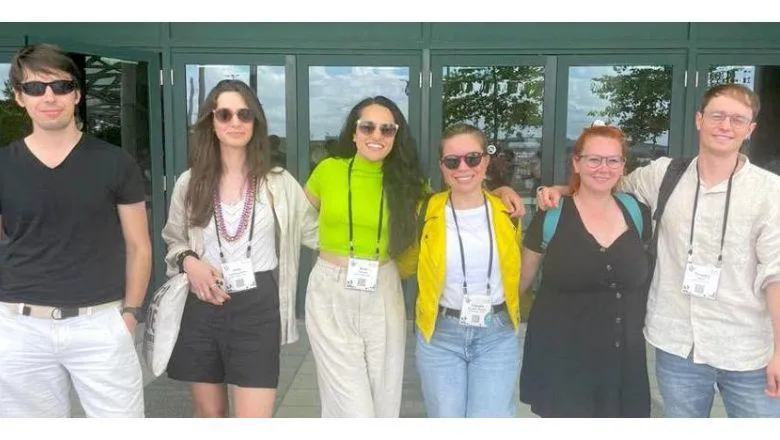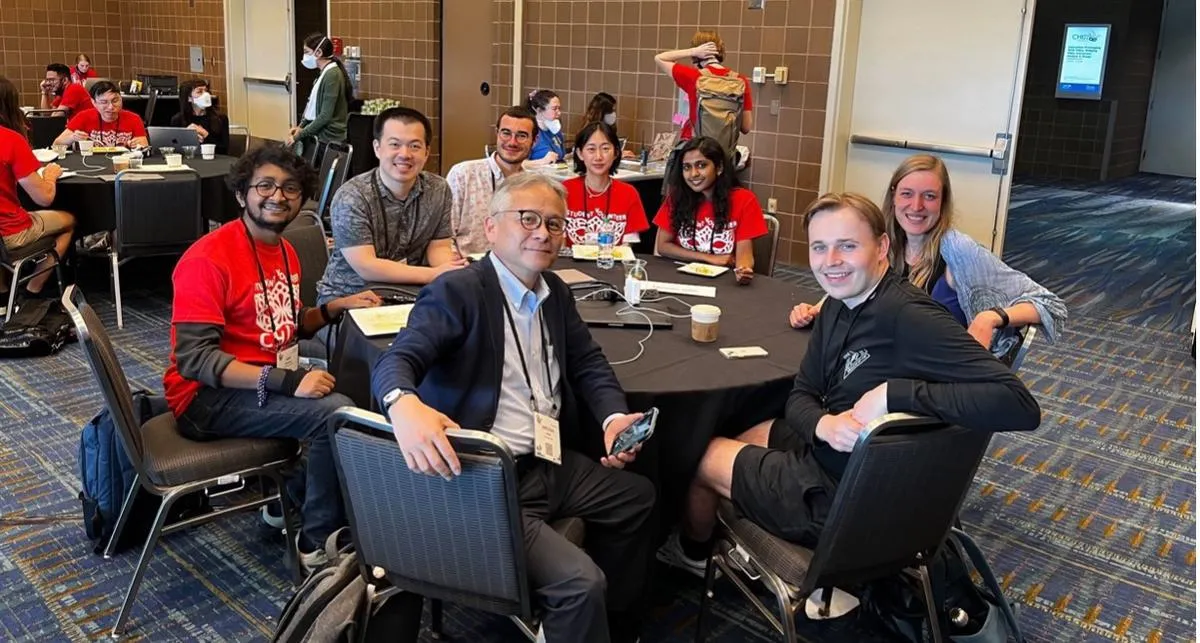31 May 2022
Human Centred Computing Group present at CHI conference
The Human Centred Computing Group (HCC) had a strong presence at the ACM CHI conference

The Human Centred Computing Group (HCC) had a strong presence at the ACM CHI conference. CHI is the leading venue to publish Human-Computer Interaction (HCI) research, typically attended by about 3000 of the top human-computer interaction researchers and practitioners worldwide.
We were excited to be able to attend the first ‘proper’ in-person CHI since 2019 (e.g., pre-pandemic). This year, CHI was hosted in New Orleans – home of Mardi Gras and birthplace of Louis Armstrong (and arguably jazz itself).

Publications
The group presented four papers at the conference, three of which were fortunate enough to win paper awards.
Exploring Situated & Embodied Support for Youth’s Mental Health: Design Opportunities for Interactive Tangible Devices
Work led by post-doctoral researcher Dr Claudia Daudén Roquet on Dr Petr Slovak’s Future Leader fellowship. This paper was awarded with a Best Paper Honourable Mention Award (Top 5% of papers). The paper can be found here and the video can be found here.
Exploring Technology-Mediated Parental Socialisation of Emotion: Leveraging an Embodied, In-situ Intervention for Child Emotion Regulation
Work led by 2nd year PhD student Nikki Theofanopoulou, with her PhD supervisor Dr Petr Slovak. This paper was also awarded with a Best Paper Honourable Mention Award (top 5% of papers). The paper is available here and the video can be found here.
“Just Not Together”: The Experience of Videoconferencing for People with Aphasia during the Covid-19 Pandemic
Work led by Lecturer Dr Timothy Neate, through a collaboration with City, University of London researchers and supported by a student intern through the KURF (King’s Undergraduate Research Fellowship) programme. This work provided insight into the experience of people with the language impairment aphasia when communicating via videoconference. This work also won a Best Paper Honourable Mention (top 5% of papers). The paper is available here and the video can be found here.
Design (not) Lost in Translation: A Case Study of an Intimate-Space Socially Assistive ‘Robot’ for Emotion Regulation
Finally, members of the group (Dr Petr Slovak and Nikki Theofanopoulou) also contributed to a TOCHI journal article published at the conference, in collaboration with the University of California Santa Cruz and Sproutel. The article provides insights into the design and development of a social assistive robot for emotion regulation in children.
Workshops
The group also contributed to, and helped run the “Future of Emotion in HCI” workshop at CHI. This workshop explored the role of emotion in HCI from a variety of perspectives with researchers from a range of disciplines and backgrounds. More can be found in the workshop paper and also, through the workshop website, which has a list of participants and accepted papers.
Student Volunteers
Three of our PhD students – Sara Tandon, Nikki Theofanopoulou, and Humphrey Curtis also acted as student volunteers (SVs) to support the conference. They got to help support the conference in exchange for free admission. This was also an excellent opportunity for them to meet a range of likeminded PhD students, and some HCI household names.
